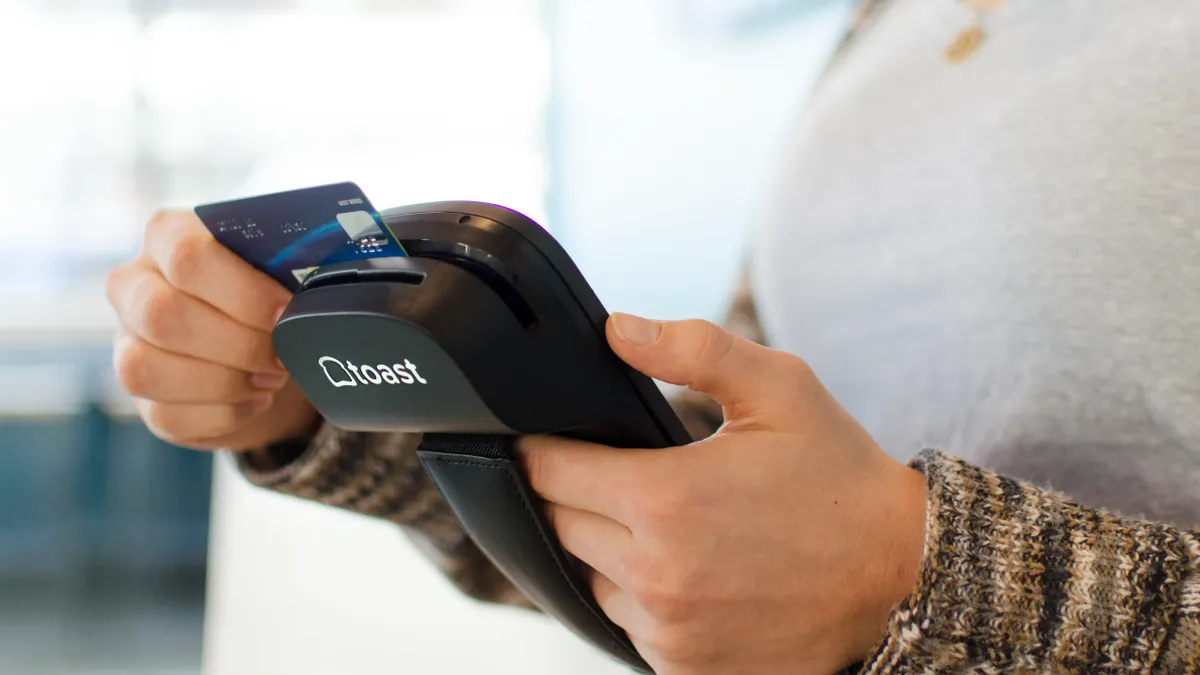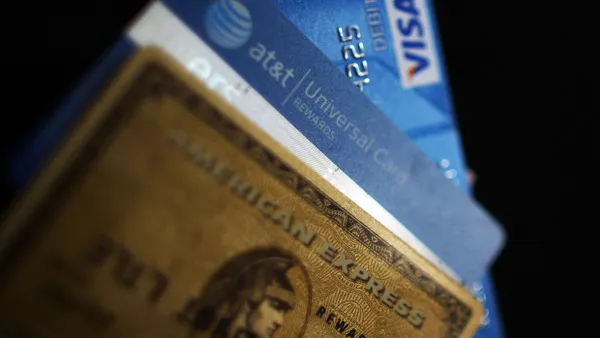Dive Brief:
- Continued cross-selling of software services may allow Boston restaurant payments provider Toast to achieve profitability, on an adjusted earnings basis, before interest, taxes, depreciation and amortization, in the third quarter of 2023, Mizuho Americas analysts said this week. For the recently ended third-quarter, the analysts are forecasting a $37 million loss on that basis.
- Toast’s “restaurant land-grab is in full swing,” Mizuho analysts wrote in a Monday note to investor clients. The analysts said restaurants also using the company’s payroll service are likely to use its other software services, too. That’s according to a Mizuho survey in September and October of about 55 Toast restaurant customers.
- Although the analysts were initially “a little skeptical that [Toast] monetized too much through payments revenue,” the survey results suggest Toast is gaining steam on the software side, which provides a more consistent, lower-risk revenue stream, said Nick Lucas, a Mizuho equity research associate.
Dive Insight:
Toast restaurant clients that use its payroll service tap an average of two times more software products from the company, and pay $4,000 to $5,000 more per year, than Toast customers who don’t, Mizuho discovered.
Bundling those services, which could include online ordering or digital marketing, holds appeal for restaurant operators who’ve previously used multiple companies to handle different business operations, Lucas said.
“Every additional software module that Toast is able to add on or cross-sell is just incremental uplift to revenue,” Lucas said. The added revenue opportunity was one of the potential perks of Toast’s July acquisition of partner Sling, which offers technology tools for employee scheduling and communication. Toast said Tuesday that it’s also adding a catering and events invoicing capability for restaurants it serves.
About 68,000 restaurant locations use Toast, the company said when it reported second-quarter earnings in August. At that time, it also reported a first-half loss of $77 million loss on revenue of $1.2 billion for the period.
There’s no shortage of competitors Toast faces in the restaurant payment services market. While tech heavyweights like NCR and Oracle have a strong presence at bigger restaurants, including fast food chains, rivals that include Toast, Block’s Square and Fiserv’s Clover are more common at U.S. small to mid-sized restaurants, Lucas said. Lightspeed, Shift4 and SpotOn round out the competitive landscape.
Toast’s business is bigger than some competitors in its tier: Its payment volume is about $1.4 million per year, topping Square’s approximately $500,000 in annual volume.
Although it’s hard to predict how restaurant spending might be affected, Toast’s higher payment volume could position it better to withstand a potential economic downturn. The uncertain economic environment is “on the radar as far as a medium- to near-term risk to their business,” Lucas said.
Another noteworthy finding: About 36% of those polled by Mizuho had switched to Toast from Square, Lucas said. He chalked that up to Toast’s software services coming out ahead of Square’s among restaurant operators.
It also suggests restaurant operators might see Toast as an upgraded provider as they grow their businesses. “Being specialized in restaurants particularly helps Toast here,” Lucas said.











